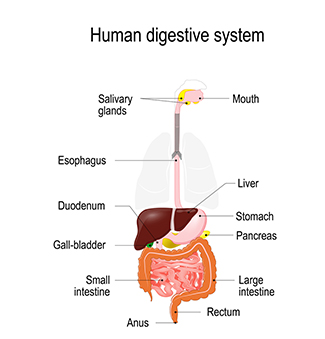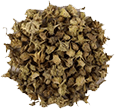IMMUNE SYSTEM DISEASES AND DISORDERS
- Disorders of the immune system
- Immune System
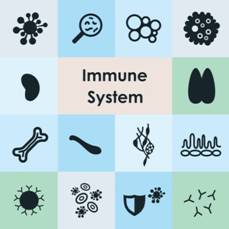
An immune system disorder is a dysfunction of the immune system. It is when the immune system doesn’t work the way it should. Immune system disorders can be characterized by:
- Primary immune deficiency or immunodeficiency – is when you are born or inherit a weak immune system
- Acquired or Secondary immune deficiency or immunodeficiency – is when you acquire a disease that weakens your immune system.
- Allergies – is when an immune system is too active.
- Autoimmune disease – is when an immune system turns against you
Primary immunodeficiency diseases
are a group of rare, chronic disorders in which part of the body’s immune system is missing or functions improperly. These immune system diseases are caused by hereditary or genetic defects, and, although some disorders are present at birth or in early childhood, the disorders can affect anyone, regardless of age or gender. While some disorders affect a single part of the immune system, others may affect one or more components of the system. Some of these diseases are as follows:
X-linked agammaglobulinemia(XLA)
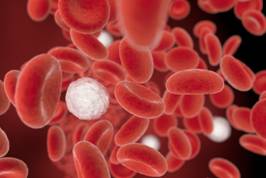
Is a rare genetic disorder that affects the body’s ability to fight infections. In this rare condition, the white blood cell formation process does not generate mature B cells, which manufacture antibodies that help defend the body from infections. This disorder is more common in males.
Common variable immunodeficiency (CVID)
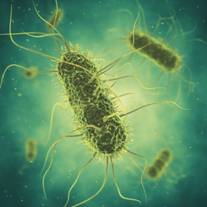
Is a disorder that impairs the immune system. People with CVID are highly prone to infection from foreign invaders such as bacteria, or more rarely, viruses and often develop recurrent infections, particularly in the lungs, sinuses, and ears. Pneumonia is common in people with CVID and over time recurring infections can lead to lungs diseases.
Severe combined immunodeficiency (SCID)
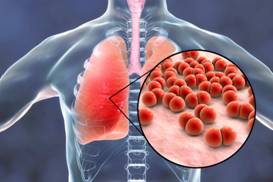
Is a rare genetic disorder characterized by the combined absence of T- lymphocyte and B- lymphocyte function. This condition is considered to be the most serious of all the primary immune system disorders. This disorder is sometimes called “bubble boy disease”.SCID patients are usually affected by severe bacterial, viral, or fungal infections early in life and often present with interstitial lung disease, chronic diarrhea, and failure to thrive.
Secondary immune deficiencies or acquired deficiencies are problems of the immune system that are not genetic and which are caused by external factors. These immune system disorders are more frequent than primary immune deficiency.The most well-known example of a secondary immune deficiency is the immunodeficiency caused by the human immunodeficiency virus, or HIV. HIV attacks certain cells in the immune system and prevents them from carrying out their proper functions against microbes. When the immune system is sufficiently weakened, infected people catch atypical and severe infections. This is then called Acquired immunodeficiency syndrome or AIDS.
Other causes of secondary immune system disorders include: severe malnutrition, certain chronic diseases such as diabetes, immunosuppressive medication or chemotherapy, certain cancers such as leukemia, and the absence of the spleen.
Allergies

Allergic diseases and symptoms occur because of an active immune system that reacts to things that are usually harmless, such as pollens, pet dander or foods. Allergies manifest in a number of very specific ways, including nasal and eye symptoms, allergic asthma, eczema, hives and anaphylaxis. It is common for a person to have more than one allergic disease. The immune system in people with allergies reacts in a specific way to allergens. Allergens are those things that trigger allergic symptoms. Common allergens include materials and particles in the air and environment such as dust mites, molds, pet dander, tree pollen, grasses and weeds, foods, drugs and stinging insect venoms. Some allergic diseases are as follows:
Hay fever

Hay fever or allergic rhinitis isa problem in people with allergic immune deficiencies, with symptoms of itchiness, stuffiness, runny noses and sneezing when the affected person breathes in certain allergens. Watery, red and itchy eyes (allergic conjunctivitis) can also occur. The occurrence and the level of severity of symptoms depends upon exposure to the allergens to which the person reacts. When the stuffiness gets very bad, it can lead to rhino sinusitis where fluid and pressure accumulates in the sinuses, leading to discomfort and risk of infection.
Allergic asthma

Allergic asthma is a chronic allergic immune system disorder of the lungs. People with allergic asthma experience breathing difficulties such as wheezing, chest tightness and coughing can that can be triggered after inhaling something to which they are allergic to, like tree pollen or mold. Causes leading to such a condition are, Changes in temperature, smoke, strong smells and other non-allergens. For many patients, depending on the severity and frequency of symptoms, daily inhaled steroids and other medications are also used to prevent symptoms and control the disease.
Food Allergies
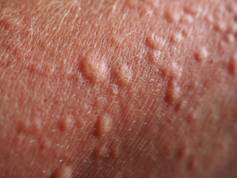
Food allergies result from the development of specific immune responses to foods. Symptoms of this immune system disorder usually occur within minutes to a few hours of eating a food to which a person is allergic. Symptoms of food allergy can include hives (which look like mosquito bites), flushing and itching of the skin, vomiting, diarrhea or abdominal cramping. In severe cases, difficulty breathing, a feeling of throat closure. Significant decrease in blood pressure and unconsciousness can occur. Food allergies are treated by carefully avoiding the offending foods.
Eczema

Several immune system diseases are associated with the development of eczema. Eczema, or atopic dermatitis, is chronic skin inflammation that is sometimes made worse by exposure to foods or environmental allergens, particularly in children. The main problem with eczema is usually a breakdown of the skin barrier and activation of the immune system in the skin, leading to inflammation with severe itchiness. The skin barrier functions to keep water in the skin and to protect it from bacteria and allergens. Loss of this barrier leads to skin dryness and increased risk of infection. Immune system diseases associated eczema, included, Wiskott-Aldrich Syndrome, the autosomal dominant hyper-IgE syndrome and IPEX.
Autoimmune Disease is a condition where the impaired immune system attacks and damages its own tissues. The cause of such abnormal response by the immune system is generally unknown. Women are more susceptible to this condition than men and are more prone during adulthood. Here are a few common immune system diseases that are generally considered autoimmune:
Rheumatoid arthritis

- It is an autoimmune disease where the immune system produces antibodies that attack the joints, causing
- inflammation, swelling, and pain. If untreated,
- rheumatoid arthritis causes
- gradually causes permanent
- joint damage.
Lupus

Lupus is a systemic autoimmune disease that occurs when your body's immune system attacks your own tissues and organs. Inflammation caused by lupus can affect many different body systems — including your joints, skin, kidneys, blood cells, brain, heart and lungs.
Inflammatory bowel disease

Is a autoimmune disorder that involves chronic inflammation of the digestive tract. The immune system attacks the lining of the intestines. Symptoms include diarrhea, rectal bleeding, urgent bowel movements, abdominal pain, fever, and weight loss. Ulcerative colitis and Crohn's disease are the two major forms of IBD.
Multiple sclerosis
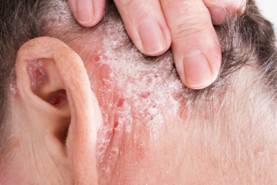
Multiple Sclerosis is a condition in which the immune system attacks the protective sheath (myelin) that covers nerve fibers and causes communication problems between your brain and the rest of your body.The immune system attacks nerve cells, causing symptoms that can include pain, blindness, weakness, poor coordination, and muscle spasms.
Type 1 diabetes

Also known as insulin-dependent diabetes, is a chronic condition in which the pancreas produces little or no insulin, this happens due to the immune system antibodies that attack and destroy insulin-producing cells in the pancreas. Type 1 diabetes usually appears during childhood.
Guillain-Barre syndrome

Is a rare autoimmune diseasein which your body's immune system attacks your nerves. Weakness and tingling in your extremities are usually the first symptoms. These sensations can quickly spread, eventually paralyzing your whole body.
Psoriasis.This autoimmune disorderis a common skin condition that speeds up the life cycle of skin cells. It causes cells to build up rapidly on the surface of the skin. The extra skin cells form scales and red patches that are itchy and sometimes painful.
Graves' disease

Graves' disease is an immune system disorder that results in the overproduction of thyroid hormones (hyperthyroidism). Although a number of disorders may result in hyperthyroidism, Graves’ disease is the most common cause. Symptoms of Graves' disease can include bulging eyes as well as weight loss, nervousness, irritability, rapid heart rate, weakness, and brittle hair.
Hashimoto's thyroiditis
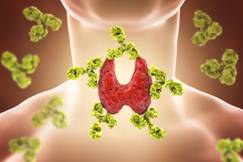
Also known as chronic lymphocytic thyroiditis, is an autoimmune disease in which the thyroid gland is gradually destroyed by antibodies produced by the immune system. Early stages there may be no symptoms. Over time the thyroid may enlarge forming a painless goiter. Symptoms include fatigue, constipation, weight gain, depression, dry skin, and sensitivity to cold.s

Rejuvenation and revitalizing the body has become a very important step in today’s hectic lifestyle. Keeping our bodies healthy and active from within is the key to a better lifestyle and this can be achieved if we have a strong and robust immune system. A daily dose of Dabur Chyawanprash along with healthy lifestyles helps boost immunity. Dabur Chyawanprash contains more than 40 herbs that help boost your immunity and builds you strong from within. We recommend you try it out today.
You may also view the list of other natural immunity boosting foods by Dabur Chyawanprash. Visit our immunity blog to learn how to increase immunity and the top home remedies to improve immunity power.
Visit our immunity blog to learn how to improve immunity naturally.



